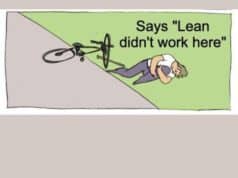Low morale linked to management, not money
Is this from the “well duh” category? The article is short and basically a press release, so I'll put the full text below:
A Chicago outplacement consulting firm says the main cause of low job morale is bad management, not low pay.
Nearly three out of four respondents to a survey among U.S. human resource executives put the blame for low employee morale on poor leadership, Challenger, Gray & Christmas said Monday.
Only 11 percent put the blame on issues over salary and benefits. Slightly more, 16 percent, cited heavy workloads as the primary cause of low morale.
‘Leadership, or the lack thereof, creates the work environment. If there is confusion about what leadership expects, frustration sets in and morale sinks,' CGC said in a statement.
I bet if you polled employees, not just HR types, you'd get the same response. If you're a manager who blames HR for poor morale, you really don't understand your role as a manager. I guess it's ok for HR to blame management? I guess HR should, if anything, push managers to be better leaders. If HR or management expects to make people happy through more pay or better incentives, they're also barking up the wrong tree.
I've always thought, seen, and believed that NOBODY is disgruntled on their first day of work. Management does that to people. Sometimes it doesn't take long. I've seen that personally in previous jobs. I'm lucky that I really enjoy my current job. Most people aren't that lucky.
What do you think? Please scroll down (or click) to post a comment. Or please share the post with your thoughts on LinkedIn – and follow me or connect with me there.
Did you like this post? Make sure you don't miss a post or podcast — Subscribe to get notified about posts via email daily or weekly.
Check out my latest book, The Mistakes That Make Us: Cultivating a Culture of Learning and Innovation:










When you’re a manager required to implement a policy, even when you’ve questioned it, you have to represent the company to employees without being disloyal. Someone once described it as being handed a plate of s**t, and you have to say “mm..m” and hand it to the employees. The more experience I had as a manager, the more I believed that was right.
Hey Karen, you sure hit than one right on the head!
Do you really, Karen? Isn’t it your job as a leader to question your management so you’re not just passing the shit downhill? That sounds like a cop-out and not real leadership. You can’t go bad-mouthing your company or upper management to your employees, but you do have to question things appropriately and not just be a corporate pawn, in my opinion.
Hey “Anonymous”
Karen said “even when you’ve questioned it.” (a bad policy)
I’m reading between the lines here, but I take that to mean that she discussed, debated, etc. with her boss to try and not go forward with a policy that would actually hurt the company.
At some point all *.* subordinates must either follow orders or leave once all other options have been exhausted.
Karen? Anything to say on this?